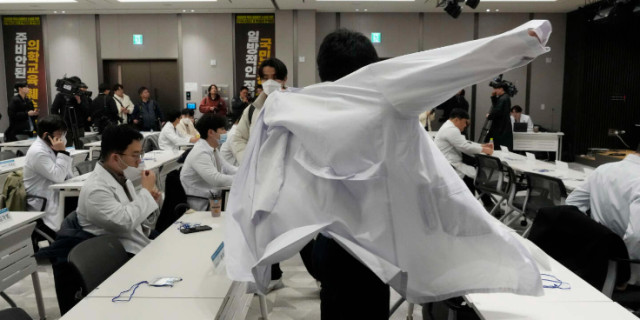Following the ongoing doctors' strike, South Korea’s parliament has passed a bill allowing nurses to perform certain medical procedures typically carried out by doctors.
For years, nursing unions have pushed for legislation to improve working conditions, but have faced strong opposition from doctors and political deadlocks.
The strike, which began in February, is in protest of the government’s plan to increase medical school admissions to address a doctor shortage.
This has placed additional legal and workload pressures on nurses.
The new legislation will ensure the establishment of a legal grounds for physician assistant nurses to conduct specific procedures.
However, some aspects, such as easing qualifications for nursing assistants, were left for additional discussions, the government said.
The Korean Nurses Association welcomed the bill, saying it was the outcome of a 19-year effort, which is a significant step toward establishing a comprehensive nursing care system and achieving universal health coverage.
“Today’s passage opened the path to establish a nursing care system and realise universal health coverage, while laying the foundation for the state’s responsibility to train, dispatch and secure outstanding nursing personnel,” the group said in a statement.
Reacting, the Korean Medical Association, criticised the bill, warning it could lead to unlicensed medical practices and ultimately harm patients.
“The medical sector will become a mess due to the prevalence of illegal, unlicensed medical practices and confusion over the scope of work, and the damage will be passed on entirely to the ordinary citizens,” it said in a statement.
In a briefing, the country Health Minister Cho Kyoo-hong expressed optimism that the legislation would bolster support for healthcare professionals and urged doctors to resolve the ongoing strike.




















